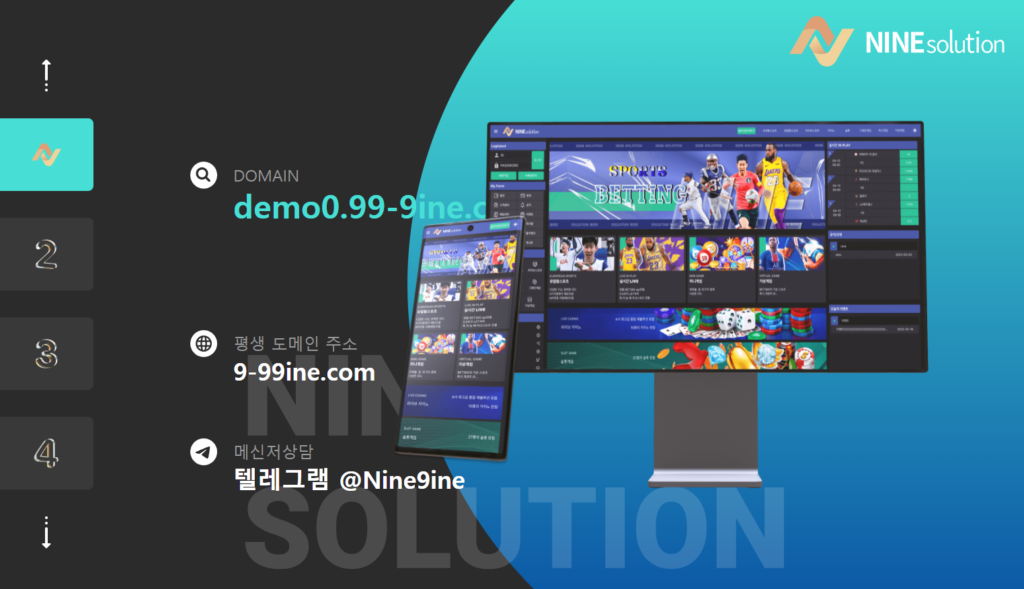The NBA (National Basketball Association) is one of the most exciting and globally popular sports leagues, attracting millions of fans and bettors worldwide. With its fast-paced action, superstar athletes like LeBron James, Giannis Antetokounmpo, and Stephen Curry, and a host of exciting events such as the NBA Finals and All-Star Weekend, there’s always something to wager on. For UK-based bettors who have self-excluded from UK-licensed betting sites through GamStop, it can be frustrating to miss out on the chance to place bets on NBA games.
However, there’s good news! There are numerous betting sites not on GamStop that offer the opportunity to bet on NBA games, with the added bonus of high-value NBA odds. These sites allow you to continue betting on the NBA without the restrictions of GamStop, offering competitive odds, a wide range of betting markets, and a host of promotions.
In this comprehensive guide, we will explore the best betting sites not on GamStop for betting on NBA games, why these sites offer high-value NBA odds, and the key factors to look for when choosing the right platform for your NBA bets.
What Are Betting Sites Not on GamStop?
Betting sites not on GamStop are online sportsbooks that are not part of the UK’s GamStop self-exclusion program. While GamStop is designed to help players manage their gambling habits by blocking access to UK-licensed gambling sites, these non-GamStop betting platforms are licensed and regulated outside the UK. Consequently, they are not bound by the restrictions imposed by GamStop, allowing players who have self-excluded from UK-regulated platforms to continue enjoying sports betting, including NBA wagers.
These sites are typically licensed in jurisdictions like Curacao, Malta, or Gibraltar. They may offer a wide range of sports, including basketball, with the flexibility for bettors to place wagers on various NBA events and tournaments.
Why Bet on NBA Games at Betting Sites Not on GamStop?
When it comes to betting on NBA games, non-GamStop betting sites can provide several advantages that make them an attractive option for bettors looking for high-value NBA odds. Let’s explore why betting on NBA games at these sites can be a great choice.
1. High-Value NBA Odds
One of the primary benefits of betting on NBA games at non-GamStop sites is the potential for higher odds and better value. Non-GamStop sportsbooks often offer competitive or enhanced odds, allowing you to get more favorable payouts on your bets.
For example, when you place a bet on a game, the odds reflect the probability of an event occurring. If a sportsbook offers higher odds, it means that if your bet is successful, you’ll receive a larger payout compared to a site offering standard or lower odds. Non-GamStop betting sites tend to have more flexible odds, often leading to better value for bettors in the long run. This is particularly valuable when betting on major events like the NBA Finals or NBA Playoffs.
2. Wide Range of NBA Betting Markets
Non-GamStop betting sites typically offer a wide range of betting markets for NBA games, providing more ways to bet on each matchup. Whether you prefer to wager on the moneyline, point spread, or over/under total points, these platforms cater to every type of NBA bettor. Popular NBA betting markets include:
- Moneyline betting (betting on which team will win)
- Point spread betting (betting on the margin of victory)
- Over/under betting (betting on the total number of points scored by both teams)
- Prop bets (e.g., betting on player stats like points scored, assists, or rebounds)
- Futures bets (e.g., betting on who will win the NBA Championship or MVP)
- Live betting (betting on games as they are happening)
The diversity of betting markets ensures that you have the opportunity to find value in different aspects of each game, making the betting experience more enjoyable and rewarding.
3. Access to International Leagues and Tournaments
In addition to NBA games, many non-GamStop sportsbooks also offer bets on international basketball leagues and tournaments. Whether it’s the EuroLeague, the FIBA World Cup, or the Olympics, non-GamStop sites often provide betting opportunities on basketball events that UK-regulated sites may not cover.
This gives NBA bettors more options to diversify their wagers and expand their betting horizons beyond just the NBA season. For example, during the NBA offseason, you can still bet on top international basketball competitions or the NBA Summer League.
4. Bonuses and Promotions
Non-GamStop betting sites often offer generous bonuses and promotions for NBA bettors. These promotions can help you boost your bankroll and give you more opportunities to place high-value bets on NBA games. Some of the common bonuses and promotions available on non-GamStop sites include:
- Welcome bonuses for new users
- Free bets for NBA games or tournaments
- Enhanced odds for popular NBA matchups
- Acca (Accumulator) bonuses for multi-leg bets
- VIP programs with exclusive rewards for loyal bettors
These bonuses and promotions provide added value, making non-GamStop betting sites an attractive choice for bettors looking to get more out of their NBA wagers.
5. Flexible Payment Methods
Non-GamStop betting sites typically offer a wide range of payment methods, making it easier to fund your account and withdraw any winnings. Whether you prefer traditional options like Visa, MasterCard, and bank transfers, or newer methods like e-wallets (Skrill, Neteller) and cryptocurrencies (Bitcoin, Ethereum), these sites provide flexibility in how you deposit and withdraw funds.
For NBA bettors, the ability to quickly deposit and withdraw money means that you can make your bets without delays and get your winnings fast after a successful wager.
Key Factors to Consider When Choosing a Betting Site Not on GamStop for NBA Betting
While non-GamStop betting sites offer numerous advantages, it’s important to choose a platform that suits your needs as a bettor. Here are some key factors to consider when choosing the best site for NBA betting:
1. Reputation and Licensing
Make sure the non-GamStop betting site you choose is licensed by a reputable authority. Popular licensing bodies include Curacao eGaming, Malta Gaming Authority, and Gibraltar Regulatory Authority. A legitimate license ensures that the site operates legally, is fair, and provides a secure betting environment.
In addition to licensing, check user reviews and ratings to get an idea of the site’s reputation. Look for platforms that are known for their reliable payouts, fair odds, and trustworthy customer service.
2. Competitive Odds
For NBA betting, high-value odds are essential to maximizing your potential returns. Make sure the site you choose offers competitive odds for NBA games, particularly for high-profile matchups like the NBA Finals and Playoffs. Some sites may offer enhanced odds for major events, which can significantly increase your potential payout.
3. Variety of Betting Markets
Choose a betting site that offers a wide variety of NBA betting markets. The more options available, the more flexibility you’ll have in placing different types of bets on NBA games. Look for platforms that offer all major betting markets, including moneyline, point spread, over/under totals, player prop bets, and live betting.
4. Bonuses and Promotions
A good non-GamStop betting site should offer attractive bonuses and promotions for NBA bettors. Look for sites with generous welcome bonuses for new users, as well as ongoing promotions for existing bettors, like free bets or enhanced odds on NBA events. These promotions can help increase your bankroll and provide added value to your NBA betting experience.
5. Payment Methods
Consider the payment methods offered betting sites without gamstop by the betting site. Make sure the platform supports a variety of deposit and withdrawal options, including credit/debit cards, e-wallets, and cryptocurrencies. Also, check the processing times for withdrawals, as quick payout times are important for a smooth betting experience.
6. Customer Support
Good customer support is essential when choosing a non-GamStop betting site. Look for sites that offer 24/7 customer service through multiple channels, such as live chat, email, and phone. Responsive support can help resolve any issues you encounter quickly and efficiently.
Top Betting Sites Not on GamStop for NBA Betting
Here are some of the best betting sites not on GamStop for betting on NBA games:
1. 1xBet
- NBA Coverage: Offers extensive coverage of all NBA games, including live betting.
- Odds: Competitive NBA odds with enhanced odds for major games.
- Payment Methods: Accepts a wide range of payment methods, including cryptocurrencies.
- Licensing: Licensed by Curacao eGaming.
- Customer Support: 24/7 live chat and email support.
2. BetWinner
- NBA Coverage: Comprehensive NBA betting markets, including futures and prop bets.
- Odds: High-value odds for NBA games.
- Payment Methods: Supports a variety of deposit methods, including e-wallets and cryptocurrencies.
- Licensing: Licensed by Curacao.
- Promotions: Regular bonuses and promotions for NBA bettors.
3. FortuneJack
- NBA Coverage: Great coverage of NBA games with live betting options.
- Odds: Excellent NBA odds with enhanced value for major events.
- Payment Methods: Specializes in cryptocurrency payments.
- Licensing: Licensed by Curacao eGaming.
- Customer Support: 24/7 live chat support.
4. Cloudbet
- NBA Coverage: Covers all NBA events, including major matchups and tournaments.
- Odds: Competitive odds for NBA betting.
- Payment Methods: Focuses on cryptocurrency payments.
- Licensing: Curacao licensed.
- Bonuses: Great promotions and bonuses for new and existing NBA bettors.
Conclusion
For NBA bettors looking to maximize their potential returns, betting sites not on GamStop with high-value NBA odds are an excellent choice. These platforms offer competitive odds, a wide range of betting markets, attractive bonuses, and flexible payment options, ensuring a rewarding betting experience. When selecting a site, be sure to consider factors like licensing, reputation, and customer support to ensure you are betting on a trustworthy and secure platform. With the right non-GamStop sportsbook, you can continue to enjoy all the action of the NBA season and beyond.










